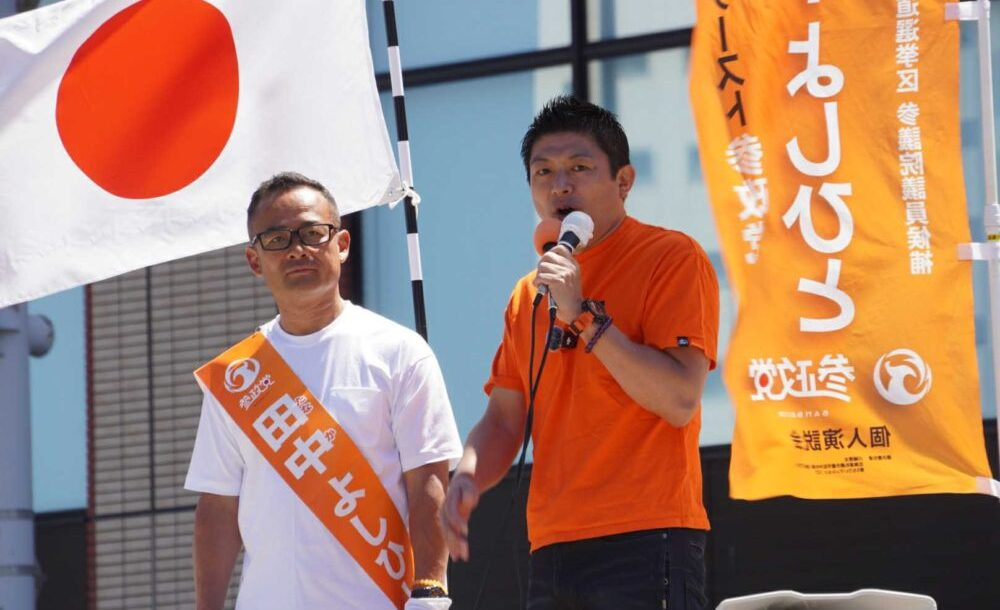hrvarts Japan has created a new task force aimed at overseeing foreign residents and tourists, sparking heated debate just days before its national upper house election. While Tokyo has long embraced foreign labor and tourism to offset its aging population and economic stagnation, rising domestic frustrations are pushing the issue into the political spotlight.
Prime Minister Shigeru Ishiba officially launched the Office for the Promotion of a Society of Harmonious Coexistence with Foreign Nationals on Tuesday, citing growing public concern over alleged crimes, misuse of social services, and land acquisitions by non-Japanese nationals.
“We must act decisively against those who abuse our systems or disrupt public order,” Ishiba stated.
The move appears aimed at appeasing increasingly vocal conservative groups and fringe political parties that promote “Japanese-first” policies, echoing the nationalist tone seen in global politics over recent years.
What the New Task Force Will Do
The newly formed office will serve as a centralized command center to monitor and coordinate government policies related to:
-
Immigration control
-
Visa policy changes (particularly for those with unpaid medical or insurance debts)
-
Land purchases by foreigners
-
Compliance with Japan’s social and economic systems
Ishiba emphasized that the initiative is not anti-immigrant but seeks to promote responsible integration and respect for Japanese rules.
Public Frustrations Behind the Shift
Although foreign residents still represent only 3% of Japan’s 120+ million population, their numbers have increased steadily in the past decade, rising from 2.2 million to 3.7 million. At the same time, tourism has surged dramatically post-pandemic, with over 21.5 million foreign visitors in the first half of 2025 alone.
This influx has led to widespread complaints from residents about overcrowding, rising prices, and disruptions in daily life. Several incidents, including the closure of a popular Mount Fuji view and shortages in local bathhouse water supplies, have been attributed to tourist behavior.
Critics also cite concerns over foreigners evading health insurance payments, hoarding real estate, and receiving public assistance, fueling resentment among some Japanese citizens.
“The aid should be going to Japanese people first,” said Kouyama Nanami, a Tokyo office worker.
“Different cultures make co-existence difficult,” added a retired businessman who requested anonymity.
Are These Complaints Backed by Facts?
Experts say much of the anger toward foreign nationals is misinformed. According to Waseda University sociologist Shunsuke Tanabe, rising anti-foreigner sentiment is driven more by political narratives and social media than real data.
“Crime in Japan has been declining despite the rising foreign presence,” Tanabe explained. Government data from 2023 shows foreigners accounted for only 5.3% of arrests, a figure consistent with their population share.
He warned that anti-immigrant rhetoric, amplified by election-season campaigning, could distort public perception and further polarize the debate.
Why Is This an Election Issue Now?
The rise of Sanseito, a right-wing party promoting “Japanese-first” policies, has pushed immigration to the forefront of campaign discourse. Although unlikely to win a majority, Sanseito is projected to capture 10–15 seats, potentially weakening the ruling Liberal Democratic Party (LDP) led by Ishiba.
Political observers believe Ishiba’s move to establish the task force is designed to show his government is taking a hard stance on immigration to retain voter confidence.
“If Japan begins to alienate foreigners, it could backfire economically,” warned Jeffrey Hall, a lecturer at Kanda University.
The Economic Importance of Foreign Workers
With Japan’s birth rate falling to 1.15 in 2024, far below the 2.1 replacement level, the country faces a worsening labor shortage. To maintain economic momentum, Tokyo has increased visa pathways and eased requirements for foreign labor.
As of October 2024, Japan recorded over 2.3 million foreign workers, many employed in nursing, construction, and service sectors. A growing number are also entering under the “Specified Skilled Worker” visa, aimed at filling critical gaps.
“To transition toward sustainable growth, Japan must remain open to global talent,” Ishiba said during his announcement. He reaffirmed the need for a balanced policy that welcomes responsible foreigners while addressing public concerns.
Future Implications
While the task force may soothe short-term political pressures, experts caution it could chill Japan’s appeal to global talent if mismanaged. A delicate balance must be struck between national security and openness, especially in a global economy increasingly reliant on cross-border collaboration.
The world will be watching how Japan navigates this tension between its economic needs and nationalist pressures as voters head to the polls this weekend.






